Roland: the brand defining the sound of music for 50 years
Genres from post-punk to hip-hop to acid house would not sound the same without the equipment produced by Roland. Rolling Stone UK goes deep into the iconic Japanese brand’s history as it marks its 50th anniversary
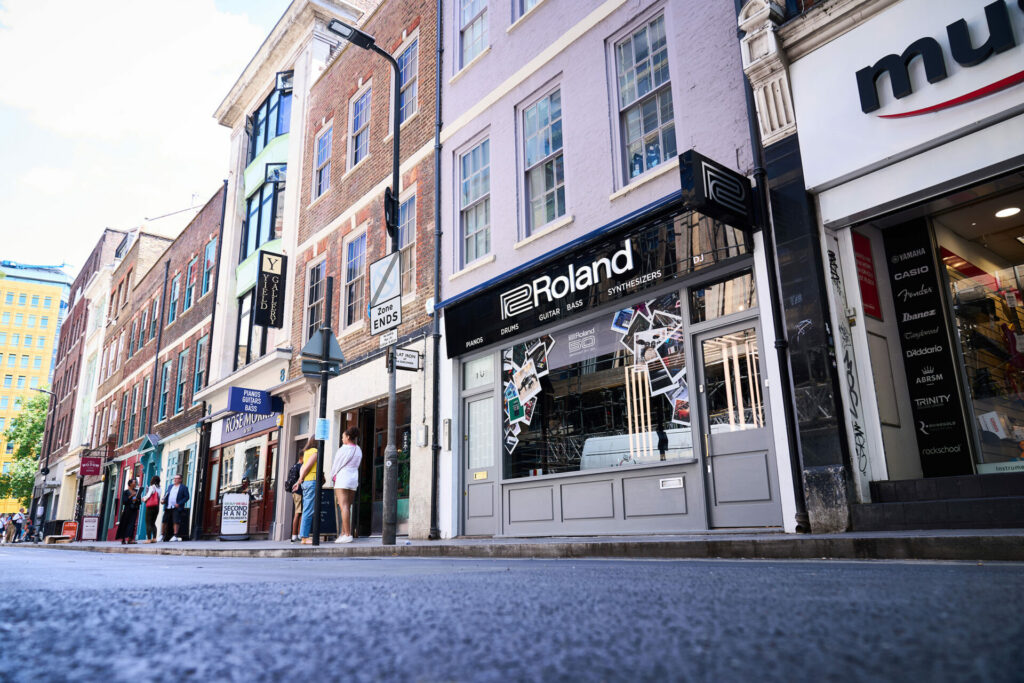
808. 303. 78. 106. Those figures aren’t lottery numbers (though they have proven to be a winning ticket for many musicians) but just some of the iconic product codes from musical instrument makers Roland, a company with unparalleled influence over the development of electronic music.
And, in the Roland numbers game, there are some new digits in town: the big 5-0. The firm is celebrating five decades in business this year with the opening of a new retail store in Central London and the release of a book, ‘Inspire the Music — 50 Years of Roland History’ (published by Bjooks). And, despite Roland’s lengthy history, it’s clear the rest of the world is still trying to catch up.
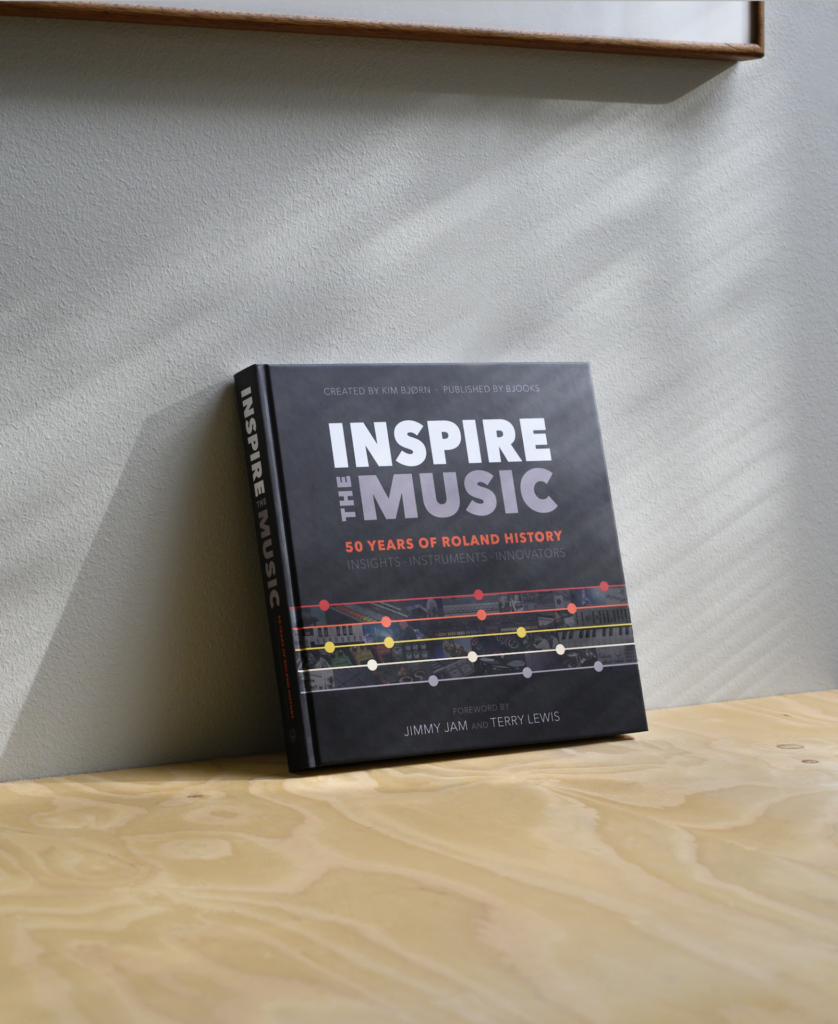
Roland Corporation was founded in 1972 on a mission to produce instruments that would help people make music in new and creative ways. It’s fair to say that mission was a success. Fifty years on, Roland has made its mark on popular music like few musical instrument manufacturers before or since.
Its JUNO-106 synthesiser was so ubiquitous during the Eighties synth-pop boom that teenagers would write into magazines to ask why their favourite New Romantic bands all had a keyboard player called Roland. The influence of its TB-303 bass synthesiser on acid house and dance music was so profound that Fatboy Slim wrote ‘Everybody Needs a 303’ about it. And its TR-808 drum machine became so intrinsically linked with hip-hop that Kanye West dedicated an entire album (808s & Heartbreak) to its distinctive beats.
“Roland has lasted 50 years because of that innovation,” says Sean Montgomery, product director for Roland Europe and a 32-year veteran of the company. “We’re all about bringing new ideas that change the way we make music. Our philosophy has always been to make products that help people create music in the most interesting and expressive ways. And that’s still the driving force today.”
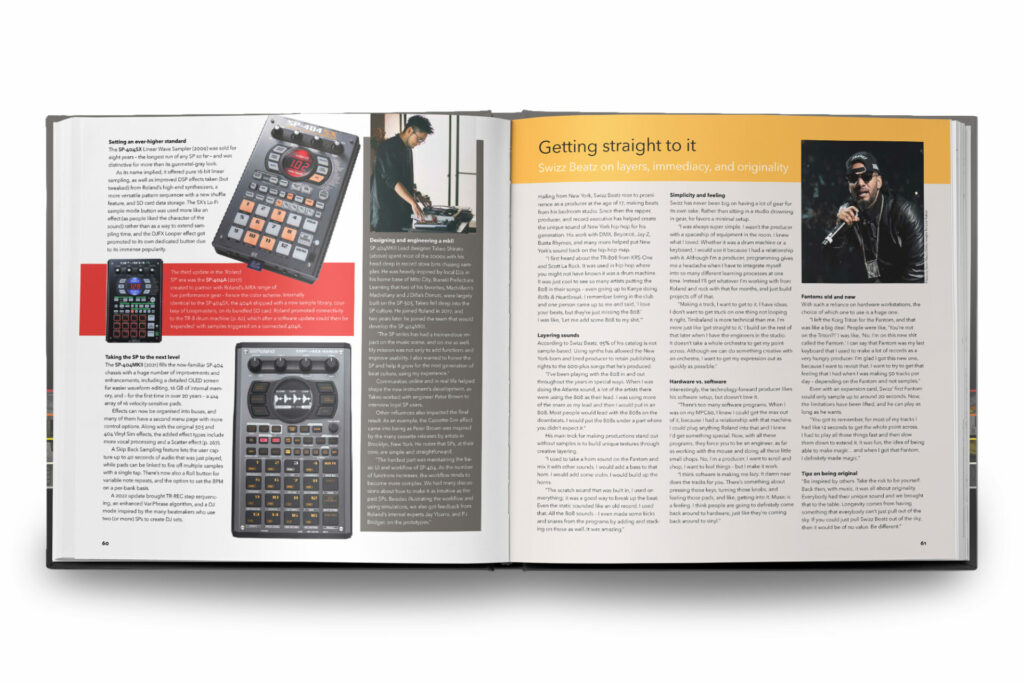
Since those early days, the company has grown into a global powerhouse spanning all types of keyboards and synthesisers, drums, amplifiers, production and DJ gear and even guitars (via its BOSS brand).
That constant quest for progression has meant that Roland products have often been ahead of their time. Sometimes a bit too far ahead — at first, both the 303 and the 808 were not used as originally designed , before finding new life once they were picked up by the kind of musicians who then made it famous.”
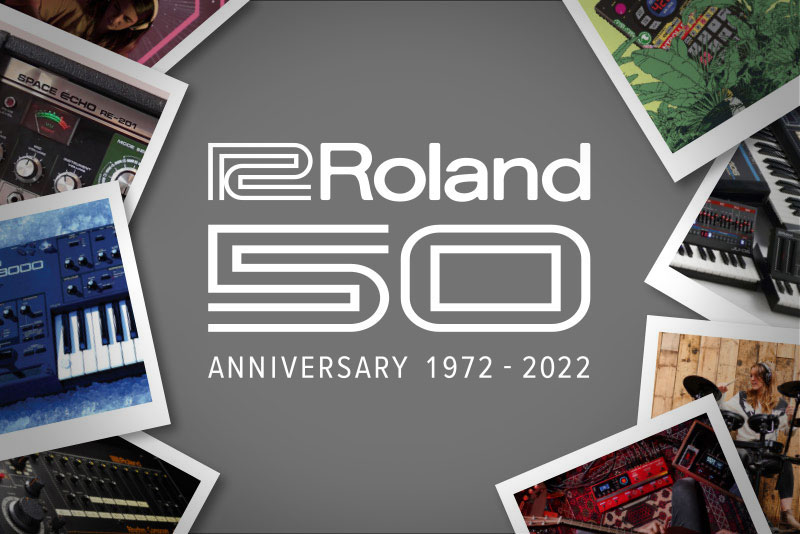
In time, the 808 became so linked to hip-hop that Hank Shocklee of renowned Public Enemy production crew The Bomb Squad once declared: “It’s not hip-hop without that sound.”
Indeed, Roland instruments have had the happy knack of being in the right place at precisely the right time to transform contemporary music. Legendary producer Steve Levine, who has worked with everyone from Culture Club to The Beach Boys, says Roland gear has been crucial throughout his career, ever since he first discovered the Roland JC-120 Jazz Chorus amp. Beloved of post-punk musicians from Robert Smith of The Cure to James Hetfield of Metallica, Levine says its built-in stereo chorus effect was “mind-blowing”.
“It’s easy to be dismissive now that you can do chorusing on your phone,” he grins. “But when you heard that for the first time back in the Seventies, there was nothing else like it. It was quite breath-taking.”
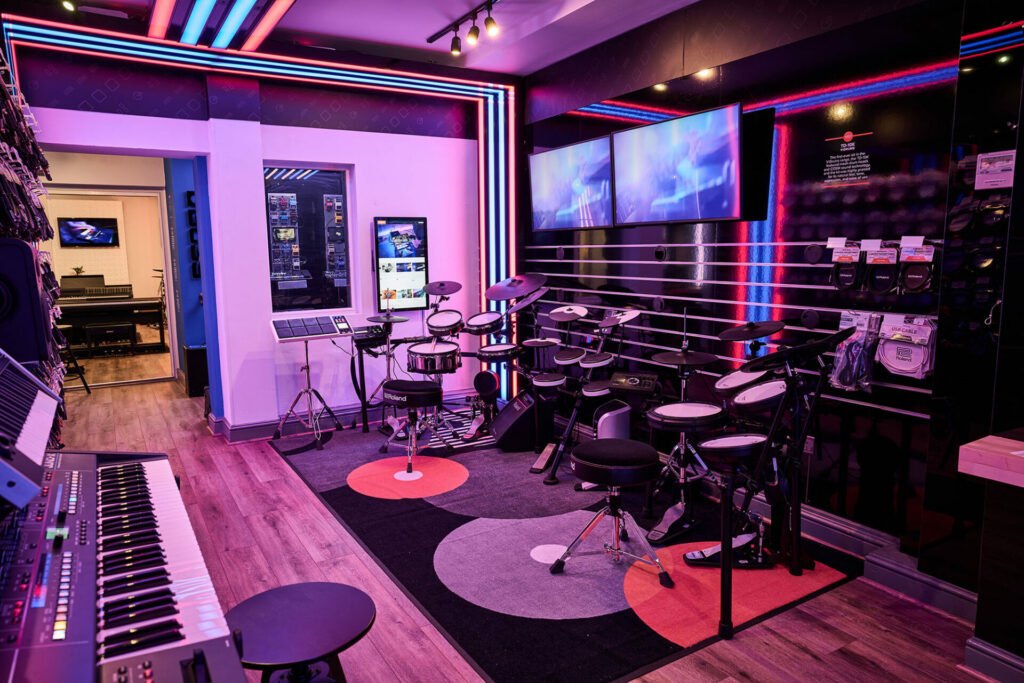
Roland also played a key role in Levine’s landmark work with Culture Club. The CR-78 drum machine was at the core of the original demo for Culture Club’s 1982 breakthrough single, ‘Do You Really Want to Hurt Me?’ Roland’s CSQ sequencer featured across the four million-selling Kissing to Be Clever album, helping to make tracks dancefloor-ready. And the signature riff on the Number One hit ‘Karma Chameleon’ was played through a Roland JC amp — still used by the band live to this day to replicate its unique sound. And then there were the synths…
“I’d argue the JUPITER-8 and JUNO-60 actually changed songwriting,” Levine says. “The arpeggiator allowed people to come up with things they wouldn’t have otherwise come up with. If you’re a crap keyboard player like me that really is a gift. Plus it was being clocked to the drum machine, so you sounded tight. It’s so simple to do now on a laptop but back then, it was mind-blowing.”
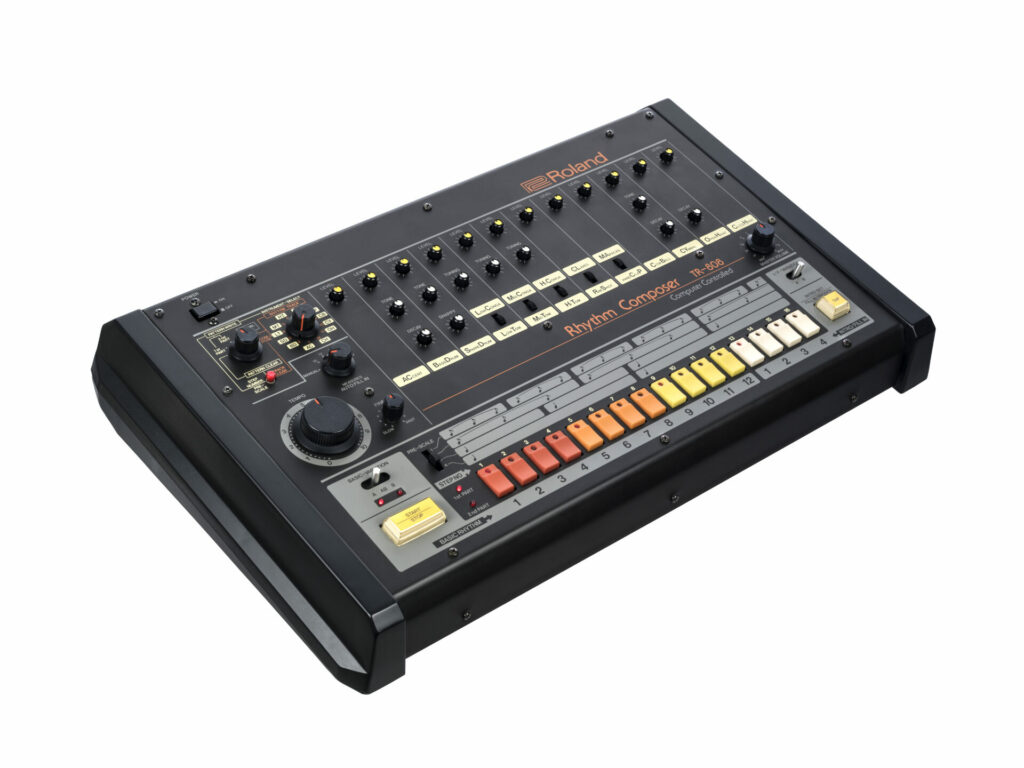
The advent of synthesisers led to much grumbling from guitar-toting “real” musicians, but Levine has no truck with such Luddite thinking.
“I can’t sit in front of a grand piano and get anything out of it,” he says. “But, equally, somebody that’s really great with a grand piano can’t sit in front of a synth and come up with all the great things we did. The fact that you could use one finger to create something really brilliant and you didn’t need music theory to make a great job of it was amazing, and it’s the same with some of the newer devices Roland are developing today. Each new generation of kit allows a kid to realise an idea that they would have been frustrated by a few years ago.”
And that is the key to Roland’s enduring success: over the years, their technological advances have consistently helped push music forward. Sean Montgomery cites the company’s key role in the 1980s development of MIDI (Musical Instrument Digital Interface) — a ground-breaking system that allowed musicians to connect different electronic instruments, computers and other gear for synchronised playing, recording and editing — as an example of how Roland has consistently produced technology that no one even realised they wanted yet.
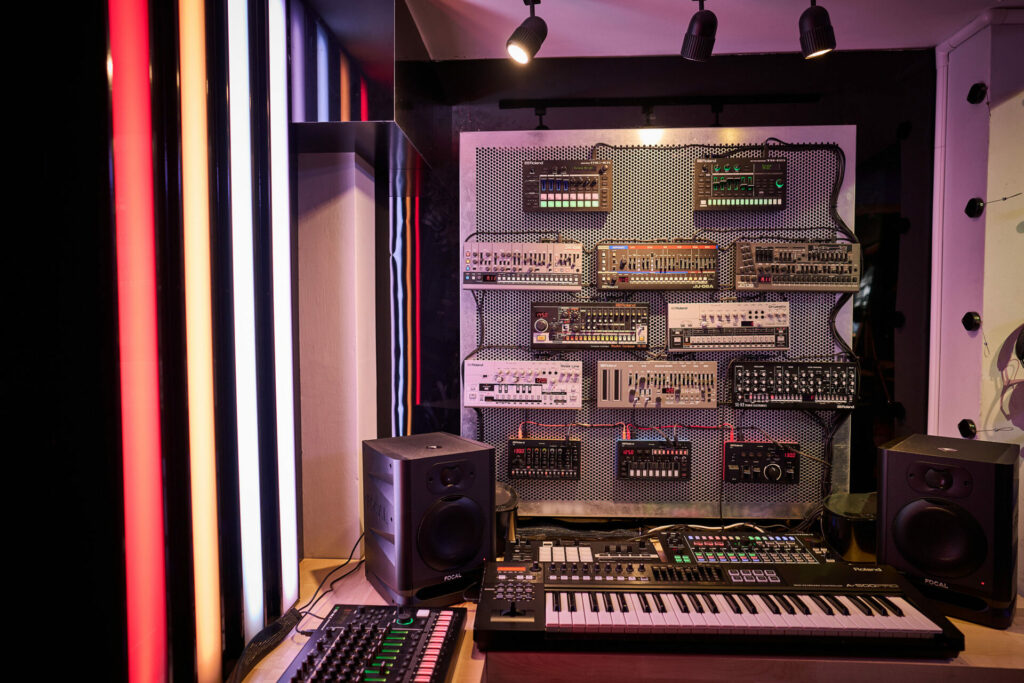
“Back then, people were saying, ‘Why would you want to do this?’” he laughs. “But look at us now. The music technology industry runs on MIDI, it just wouldn’t work without it.
“What comes first?” he ponders. “Do the technology manufacturers respond to the needs of musicians who are doing new things? Or do musicians respond to the technology given to them by the manufacturers? I’m not sure I know the answer to that — there’s possibly an element of both! But that’s the most exciting thing; as technology evolves, there will always be new ways to make music.”
And the beauty of the digital age is that Roland users now always have access to the old ways as well. It’s bad news for the legion of copycats out there, but modern musicians can utilise many classic Roland products of yesteryear, either via new compact hardware or by downloading software from the Roland Cloud — all without having to shell out thousands on the now ultra-rare originals. Fatboy Slim will be pleased — he recently noted: “Everybody [still] needs a 303. Most importantly, though people might not know it, what they need is a real 303, not a clone.”
“People still want to be able to use those sounds — a lot of them are absolutely iconic,” says Montgomery. “We’re never going to make an exact replica of a JUPITER-8 synth, but we can use today’s technology to replicate that sound and give it back to musicians. And if anyone’s going to do the best job of recreating these classic instruments, it’s going to be us!”
Roland’s illustrious history sits side-by-side with its (808) state-of-the-art new tech at the company’s first ever brand experience store, situated in London’s muso heartland Denmark Street, where store manager Chris Ould compares the brand’s history of ground-breaking gear to a record company’s back catalogue of classics.
And, just like old songs finding new audiences in the streaming age, Roland is reaching fresh fans in 2022. When Rolling Stone UK visits the store on a rainy Friday morning, it’s buzzing with young, aspiring musicians playing the huge range of keyboards and perusing the DJ gear, guitar and drums sections, while a steady stream of punters pose with retro-looking, but modern-sounding synths in the store’s eye-catching “Instagram corner”.
Ould reports great success since opening in the summer, with footfall boosted by the opening of the Outernet live music and entertainment complex opposite. There’s also considerable tourist trade in Roland lifestyle products, with T-shirts featuring fabled gear of the past proving particular favourites.
The success of the brand experience concept means more sites could be on the cards in the future, but Roland certainly won’t be resting on its musical laurels. Alongside popular innovations such as sample pads and voice tweakers, it’s pushing into digital wind instruments and recently acquired Drum Workshop, a logical fit as Roland pioneers electronic kits that look and feel like acoustic drums.
And, despite such expansions, Roland’s approach gives it greater agility than its more corporate rivals. Steve Levine praises Roland’s artist-friendly approach — it works closely with musicians on product development — while Sean Montgomery says they are “quicker to make decisions and bring products to market — with the speed at which technology and trends change, you’ve got to be able to do that.”
In a world where many storied brands have been swallowed up by big corporations, musicians like Steve Levine are glad Roland is keeping the independent flag flying.
“Their ethos is intact and their research and development is great,” he says. “They look back and forward, which is what all companies have to do. There’s a nod to their past with their products, but there are also lots of modern features which make it really great for a producer like me. And they’re lovely people. I really hope they’re around for another 50 years.”
And, as has always been the case since 1972, if you’re a musician looking to change the world, Roland has got your number.
